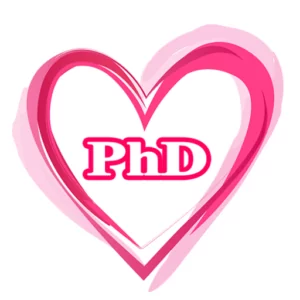As artificial intelligence continues to advance, language models like ChatGPT offer valuable assistance across various domains. However, it is important to recognize the limitations of such models, especially in scientific contexts. While ChatGPT can provide general knowledge and insights, there are specific scientific tasks and specialized areas where it may not be the most suitable source. This article iLovePhD aims to explore these limitations and highlight areas where consulting experts and reliable sources is crucial.
Discover the critical scientific domains where ChatGPT falls short and why expert consultation and reliable sources are indispensable. From safety-critical decisions to peer-reviewed research, specialized fields, experimental design, data analysis, and legal advice, uncover the pivotal areas where human expertise triumphs over machine intelligence. Join us on this enlightening journey as we navigate the boundaries of scientific knowledge.
Scientific Areas Where ChatGPT May Not Be the Ideal Source
1. Critical Safety-Related Decisions
When it comes to critical decisions where safety is a paramount concern, relying solely on ChatGPT is not advisable. Examples of such scenarios include nuclear power plant operations, aircraft navigation, or medical emergencies. In these situations, the consequences of errors or misinformation can be severe.
It is crucial to consult qualified experts or established systems specifically designed for these purposes. Expert guidance and professional judgment are essential to ensure the safety of individuals and prevent potential disasters.
2. Peer-Reviewed Research Publications
Scientific research heavily relies on peer-reviewed publications, which undergo rigorous evaluation by experts in the field. While ChatGPT can provide general knowledge and information, it may not have access to the most up-to-date or specialized research papers.
When seeking information from scientific literature, it is best to directly consult reputable peer-reviewed journals and academic databases. These sources ensure the accuracy, validity, and reliability of the information obtained.
Read: How to Correctly Use ChatGpt to Write a Scientific Research Paper?
3. Highly Specialized or Technical Fields
Certain scientific disciplines require deep expertise and specialized knowledge that may go beyond the capabilities of ChatGPT. Fields such as quantum physics, advanced mathematics, or neurosurgery necessitate years of study and practical experience to fully comprehend.
For in-depth understanding and accurate information in these areas, it is advisable to consult domain experts, academic researchers, or professionals working directly in those fields. Their expertise and comprehensive knowledge provide insights that ChatGPT might not possess.
4. Experimental Design and Data Analysis
Designing experiments and conducting complex statistical analyses are integral parts of scientific research. While ChatGPT can offer general guidance on these topics, it cannot replace the expertise of individuals well-versed in experimental design, statistical methods, and data analysis techniques.
Consulting experts who possess a deep understanding of these areas is essential to ensure robust experimental protocols, accurate data interpretation, and valid conclusions.
5. Legal Advice
Legal matters are complex and subject to specific laws and regulations that vary across jurisdictions. ChatGPT cannot replace the advice of a qualified attorney when it comes to legal advice or decisions. Legal professionals possess the necessary knowledge and expertise to navigate the intricacies of the law. When faced with legal issues, consulting an attorney who specializes in the relevant field is crucial to ensure compliance, protection of rights, and informed decision-making.
While ChatGPT provides valuable assistance across a wide range of topics, it is important to recognize its limitations, particularly in scientific contexts.
Critical safety-related decisions, peer-reviewed research publications, highly specialized fields, experimental design, data analysis, and legal matters are areas where consulting experts, relying on peer-reviewed literature, and seeking specialized knowledge are essential.
By recognizing the appropriate applications of ChatGPT and seeking expert guidance when necessary, we can make informed decisions and ensure the accuracy and reliability of scientific endeavors.
